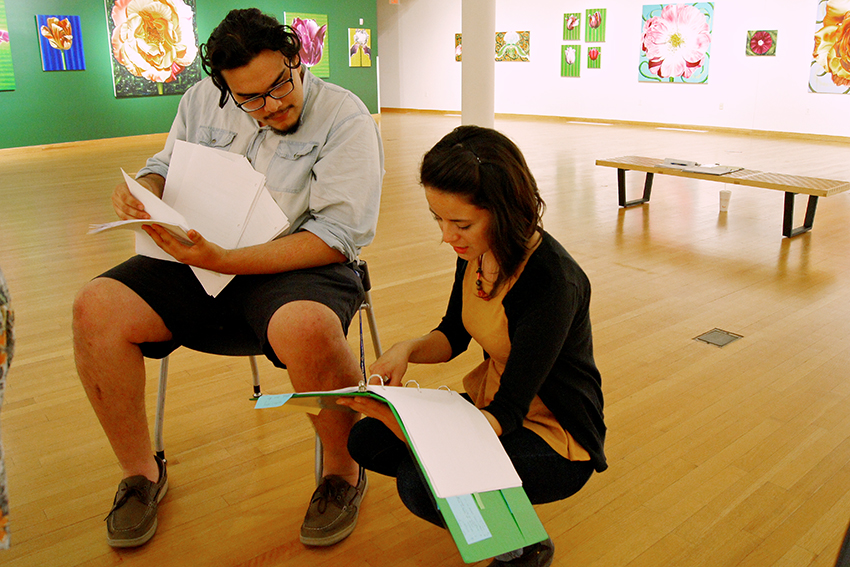At her mostly Latino-populated school, teacher Roxanne Schroeder-Arce found it problematic that her students’ theater productions only focused on stories about white people.
“Rarely were young people seeing depictions of characters who looked like their ‘abuelos’ or parents,” Schroeder-Arce said. “My work with teachers and my work as an artist is all about helping to disrupt this Eurocentric canon that permeates the theater nationally.”
After leaving her school, Schroeder-Arce began working as an associate theatre and dance professor at UT. There, she discovered Teatro Vivo, a theater that showcases Latin American-centered plays. The theater will present staged readings of new Latino plays for the Austin Latino New Play Festival on Feb. 25–27. Rupert Reyes, executive director of Teatro Vivo, said the festival will not feature the plays as finished productions but as rough drafts. Feedback sessions between audience members and playwrights follow each stage reading, allowing playwrights a chance to improve their scripts for future showcases in other theater companies.
The festival features two scripts written by UT-Austin playwrights Schroeder-Arce and theatre studies senior Andrew A. Valdez. Their plays, called “Primas” and “My Dad is a Pterodactyl,” respectively, were written especially for families and young audiences.
Schroeder-Arce said Teatro Vivo is crucial to Austin’s Latino community because it features productions parallel to Texas demographics. Schroeder-Arce’s play, “Primas,” features 14-year-old cousins Araceli and Julie who struggle through womanhood and culture shock after moving to the U.S.
Valdez said he was also motivated to showcase Latino stories in theater when he experienced the stigma of being Mexican-American. He was born six hours south of Austin in Donna, Texas, an area he describes as one of the poorest parts of the state. Growing up so close to the Mexican border inspired him to represent the Latino community through art.
“All characters of ‘My Dad is a Pterodactyl’ are Latino-based,” Valdez said. “The father is a migrant worker who works his way to becoming an Air Force pilot, which is no easy ordeal, and it highlights the heart of livelihood that Latinos can make for themselves in the U.S.”
Even though Latinos comprise almost 40 percent of the population in Texas, Reyes said there is not a major theater in the state that produces work exclusively for them, pushing him to found Teatro Vivo in 2000. Although the company focuses on Latino issues and plays, Reyes said the stories are accessible to all audiences.
“Theater is supposed to educate and entertain, not just entertain,” Reyes said. “Too much of the theatre in the U.S. is pure entertainment. People should come in to the theatre and leave with questions or answers about some social situation.”
Valdez said he has seen a conglomeration of multiple different faces, stories and voices at UT, which led him to share his own story and voice through theater.
“The art form that Teatro Vivo hands out is a very distinct voice and distinct type of theater that not many people get exposed to, and I think that by listening to one of these productions, there’s a good chance to see a side of Austin or your own world that you did not know existed,” Valdez said.















